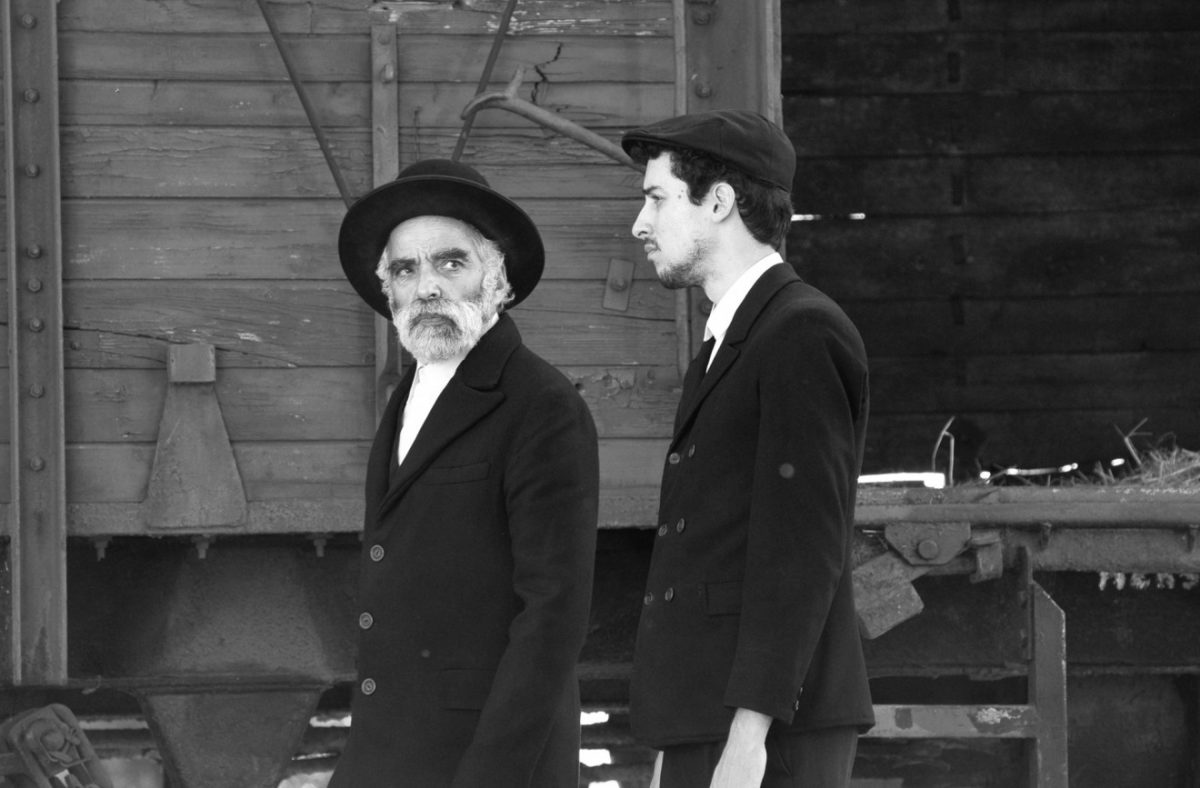Father and son step off a train and the entire town is thrown into frenzy. From this basic premise, Ferenc Török’s 1945 (2017) evokes a full range of collective guilt in post-Holocaust Hungary.
While his wife sleeps and the radio blasts updates from the Pacific Theatre, town clerk István (Péter Rudolf), suits up for his son’s wedding. Concurrently, a train pulls into the local station and two Orthodox Jewish men disembark with mysterious boxes. As news of their arrival travels, it is not long before the question “What do they want?” morphs into the alarm: “They are here to take everything back!” In stark contrast to the men’s quiet and unhurried walk into town, the resultant paranoia about their intentions is a gross overreaction that highlights the absurdity of Jewish alienation in the WWII era. From the town clerk to the police chief, the priest, and the housewife next door, everyone is implicated. Having been reassigned properties from the town’s deported Jews, the townspeople panic at the thought of these families returning to reclaim their possessions, and act to prevent this: burning title deeds, and hiding rugs, silverware and china. 1945 also draws our attention to those who disagree with this reaction, yet do nothing. This half-hearted contrition is personified by István’s son, Arpád (Bence Tasnádi) who packs up and moves to Budapest; as well as his accomplice, Bandi, (Tamás Szabó Kimmel), who drowns his guilt in palínka. Though they initially echo the film’s moral argument, saying: “We have to give it back,” and “I’m giving the store back,” neither takes any actual steps to do so.
Consisting largely of black-and-white medium and long shots, 1945 is visually clean. Against this, its sound design is slightly more inventive. In those scenes where public hysteria builds, the sound of buzzing insects interprets the spreading communal discomfort. Similarly, low rumblings underscore István’s discovery of his son’s departure, and the building sense of foreboding when his phone rings. By the film’s end, these rumblings transition into thunder, as a storm blankets the town. This use of atmospheric sounds to build up the overall mood could have been pushed further. Instead, the film largely relies upon music to convey emotion: high frequencies foreshadow trouble and a percussive number highlights the visitor’s walk to the graveyard.
Through his array of characters’ reactions, Török offers a nuanced portrayal of a society’s failure towards its Jewish members in the immediate aftermath of the war in Europe. 1945 climaxes in a graveyard, where the two men open their boxes. Here the film could have done more to resolve itself. As the incessant questions about the men’s intentions are finally answered, the response of the townspeople disappoints. For a film that so carefully elaborates their many varied reactions to the presence of these two men, it is implausible that the whole town suddenly falls into uniform inaction. At the very least, their silence should have been treated with the same care and attention that their frenzy was. Instead, the film deflects—shifting our attention to a death and fire elsewhere.
